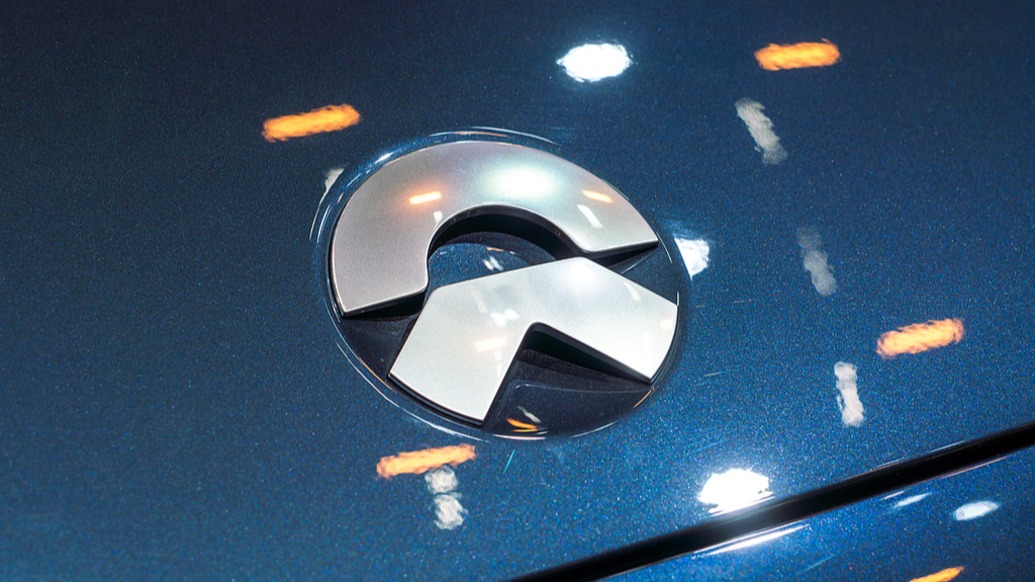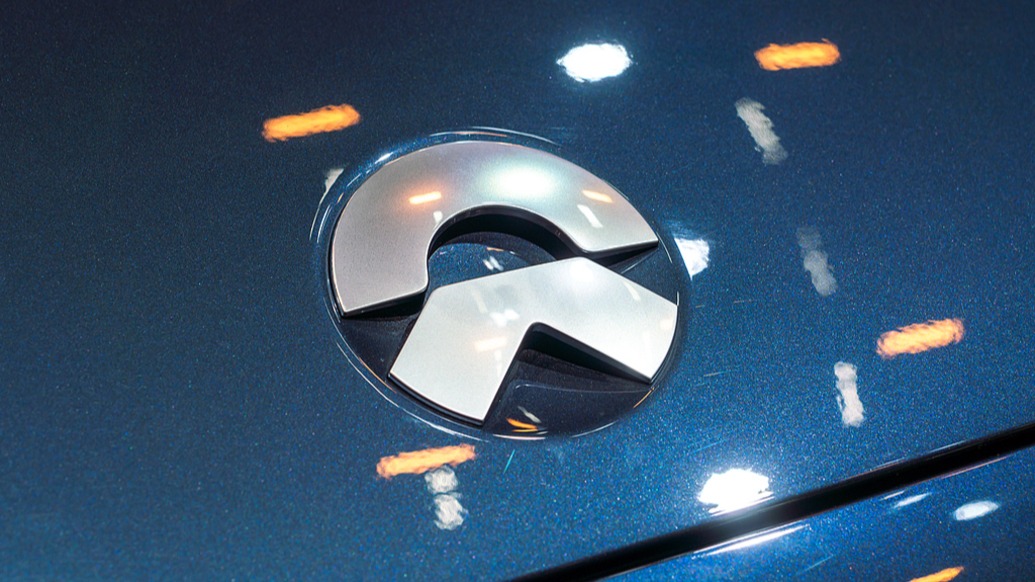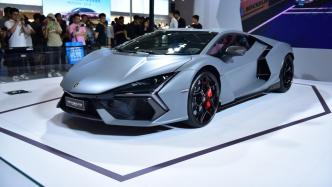
On June 1, the 2024 Guangdong-Hong Kong-Macao Greater Bay Area Auto Show and the first China New Energy Vehicle Technology Exhibition opened in Shenzhen, and the 2024 Future Automobile Pioneer Conference was held at the same time.
At this conference with the theme of "Fighting for the Flow", many top figures in the automotive and technology circles, including Lei Jun, Yu Chengdong, Zhou Hongyi, and Li Bin, gathered together. While everyone was exchanging sharp words and clashing opinions, they also reflected the booming momentum of China's automotive industry.
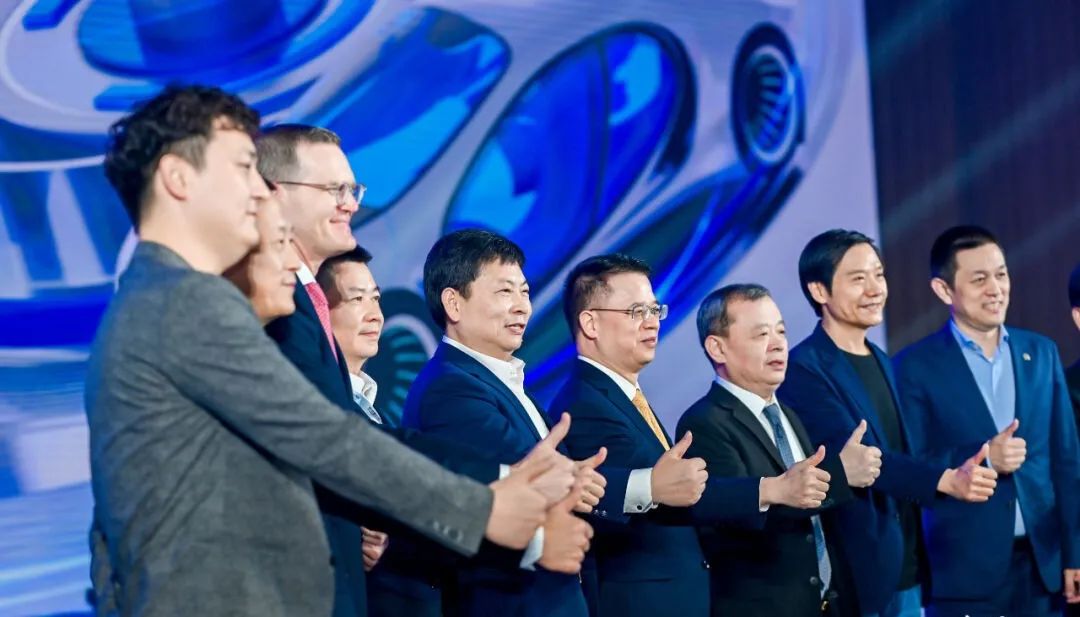
Lei Jun: Guarantee that the signal of the three-layer silver-plated mobile phone is fine
Lei Jun, the current top figure in the automotive industry, did not forget to affirm the achievements of Xiaomi Auto at the beginning.
"As a new member of the automotive industry, Xiaomi released its first smart electric car in just three years and achieved good sales results in just two months." Xiaomi SU7's first month lock-in volume was 88,000 units; 7,058 units were delivered in April, and 8,630 units were delivered in May. This year, its goal is to maintain 100,000 units and strive for 120,000 units.
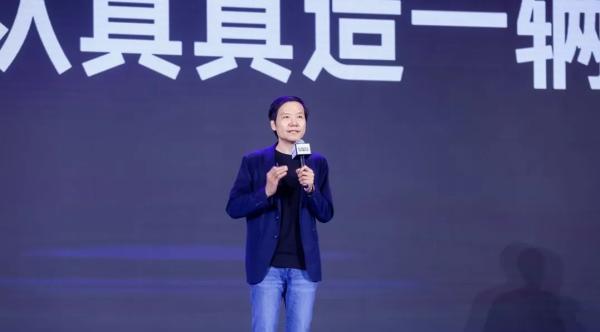
Talking about Xiaomi's opportunities in the automotive industry, Lei Jun said that the current smart electric vehicles are essentially cars, pure electric, and pure smart. In the past ten years, the entire industry has been solving the problem of electric vehicles. The problem of electrification has been well solved today, and the entire industry has begun to pay more attention to intelligence. In Lei Jun's view, Xiaomi has been engaged in microelectronics for 14 years and has accumulated a certain amount of technology for manufacturing smart electric vehicles. In his view, this is an important reason why Xiaomi can build a car within three years, and it is also the confidence that it has the strength to fight in the automotive industry.
Of course, Lei Jun did not forget to call for industry unity and jointly build an ecosystem - because he himself loves to play with ecology the most.
What’s interesting is that he took the initiative to mention the “three-layer silver-plating dispute” in front of Yu Chengdong at the conference.
Lei Jun introduced that Xiaomi cars use a "three-layer silver plating" process for sun protection. He emphasized, "Last time, Mr. Yu challenged me and asked if there would be any problem with the mobile phone signal with the three-layer silver plating. I guarantee there would be no problem."
Previously, Yu Chengdong said at the launch of the new M5 that "the three-layer silver plating on the front windshield will affect the signal."
Yu Chengdong: Learn from Lei Jun, BYD is the king of volume
In the eyes of the technology industry, the appearance of Lei Jun and Yu Chengdong at the 2024 Future Automotive Pioneer Conference is a milestone moment. The two old rivals in the mobile phone industry are now reunited in the automotive industry.
During his speech, Yu Chengdong mentioned that Xiaomi has explored product points such as sun protection and storage to meet user needs, and said that he wants to learn from Lei Jun. "Just now, Mr. Lei mentioned his insight into the sun protection needs of female users. I, Yu Chengdong, an 'old man', only know how to study technology, and we really need to learn from him in this regard."
However, regarding the previous dispute between Wenjie and Xiaomi over which company was the first to develop a large makeup mirror with adjustable color temperature, Yu Chengdong once again emphasized that it was Wenjie that first developed it based on the needs of female employees.
At the same time, he also answered questions from the audience and said that due to its ultra-low cost, BYD is "the world's number one king of volume", dominating the low-end and mid-end market. He emphasized that Huawei is not good at volume price, but is good at volume value, volume intelligence, and volume luxury.
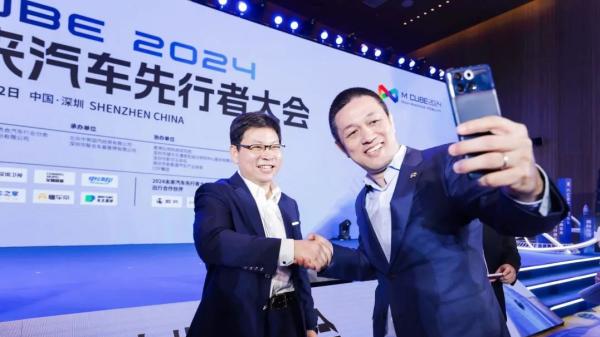
Li Bin: Invite Xiaomi and Huawei to join the battery swap market
As a fellow Anhui native, Li Bin made a short video when he met Yu Chengdong to predict how many Chinese automakers would occupy among the top ten global automakers in the future. Yu Chengdong, who spoke in an exaggerated way, said 6-7, and Li Bin said he was more conservative and predicted 5.
Compared with the new battle between Yu Chengdong and Lei Jun, Li Bin, the "native" of the automobile industry among the new forces, seems to be indifferent to the world, objective and calm. In his speech, he said that the innovation of Chinese automobile brands has attracted global attention. The new industry of smart electric vehicles, which is the intersection of the three major industries, depends on factors such as market size, supply chain foundation, talents and technology, and policy environment. The two intersect. To succeed in the field of smart electric vehicles, it is necessary to fill in the 12 key success factors. Only China can do this in the world, which is also an opportunity for Chinese companies.
He first talked about the battery life issue mentioned at the Electric Vehicle Hundred People Conference, saying that the battery must be used for at least 15 years without worry, that is, the battery still has 85% of the available power after 15 years. Otherwise, in another 8-10 years, a large number of new energy users will face the troubles caused by the end of battery life.
Regarding the ecosystem that the technology circle is keen on playing with, Li Bin also has his own "absolute domain". He said that as long as there are car companies or other partners who want to provide a better experience than charging, NIO is willing to provide battery replacement related services, and he also called on Xiaomi and Huawei to join the game.
When talking about mobile phones, a business that NIO is not good at, Li Bin also lowered his posture accordingly. He said that NIO is not trying to compete with Xiaomi and Huawei in the mobile phone market, but to match NIO cars to provide drivers with an interconnected experience. According to Li Bin, NIO is about to release the second generation of mobile phones.
Zhu Jiangming: The most miserable person in the world is the CEO of a Chinese auto company
Compared with the above mentioned figures, Leapmotor CEO Zhu Jiangming can be called a "little transparent" in the traffic circle. "I originally thought that I had no traffic and no fans. I was also very nervous when I spoke on stage like today. I didn't know how I would do a live broadcast, so I tried every means to "prepare some medicine" for users in other places, which can better reflect the value of my products."
He also complained that "the most miserable people in the world are the CEOs of Chinese auto companies" and that "monthly reports are sent out every month, weekly reports are sent out every week, and every time they are put on the fire."
Zhu Jiangming said that it is more important to master technology. "To make the product more competitive and better, it all depends on the product."
Leapmotor, which is not good at marketing, has the word "mediocre" written on its face. But it is precisely because of its extreme pragmatism and spirit of research on technology that it has always kept close to the first echelon and even has the potential to surpass it.
As its cooperation with the Stellantis Group deepens, Leapmotor may be able to get ahead of its competitors in overseas expansion by leveraging the latter's European layout.
Zhou Hongyi: Your whole family is the top in the car circle
If the big guys above are serious car manufacturers, then Zhou Hongyi, the "uncle in red" who frequently makes headlines, is a "shit stirrer". He first auctioned off his Maybach, then interacted with various brands by tasting smart electric cars, and then became the "oldest car model" at the Beijing Auto Show.
Many people say that Zhou Hongyi is not doing his job properly, and mock him as the top star in the car circle. Zhou Hongyi disagrees, saying "Your whole family is the top star in the car circle." He said that his main business is AI and safety. "I don't even have a driver's license, I'm not an experienced driver. I'm not a professional in the car circle, I'm the atmosphere group of domestic new energy."
Zhou Hongyi, who claims to be an outsider, gave a marketing lesson to senior executives in the automotive industry. He said that now, while "competing for technology", one must also "competing for bosses", and "fuel consumption per 100 kilometers has become how much bosses are consumed per 100 kilometers".
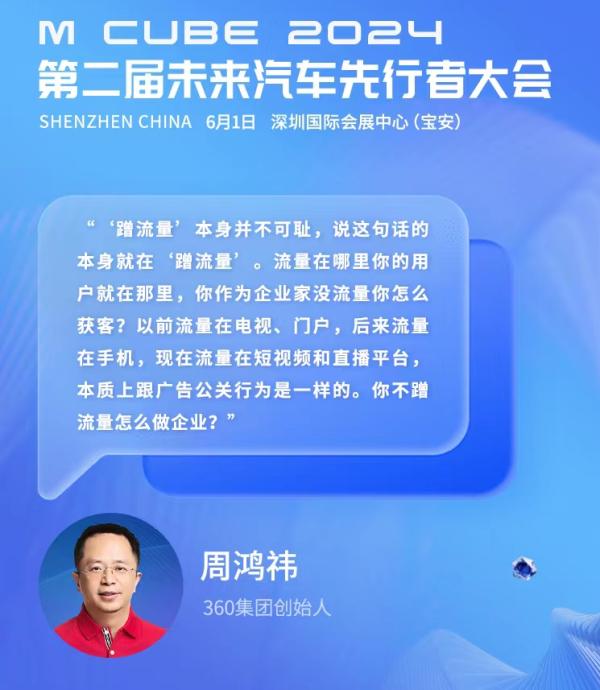
Zhou Hongyi's traffic code is that he has no baggage of being a big boss, he frequently comes up with golden sentences, and he dares to speak and act. This is also a product born out of the needs of the times. When the product competition reaches a certain level, the difference in brand image may make it stand out from a group of homogeneous products. Now, his teaching to the big bosses of car companies is: entrepreneurs need to be close to the people and get close to the users. To put it bluntly, it means to go among the masses.
Liu Tao: The current trend is to "win and die"
At the conference, Liu Tao once again responded to the previous controversy with Xiaomi. He reflected, "New car-making forces started by traditional car companies are very different from leading Internet companies in traffic marketing and traffic operations. We still need to improve in order to let users know and recognize us. Every new car-making force must tell its own story. In this incident, we realized that we are better at technological innovation. When we tell stories, we will focus on unique technologies. We really need to learn from Internet companies in terms of traffic management."
Liu Tao believes that the current trend is to 'win by rolling and die by lying', but if products tend to be homogenized, it will not be possible to break the deadlock by simply piling up various configurations to increase prices.
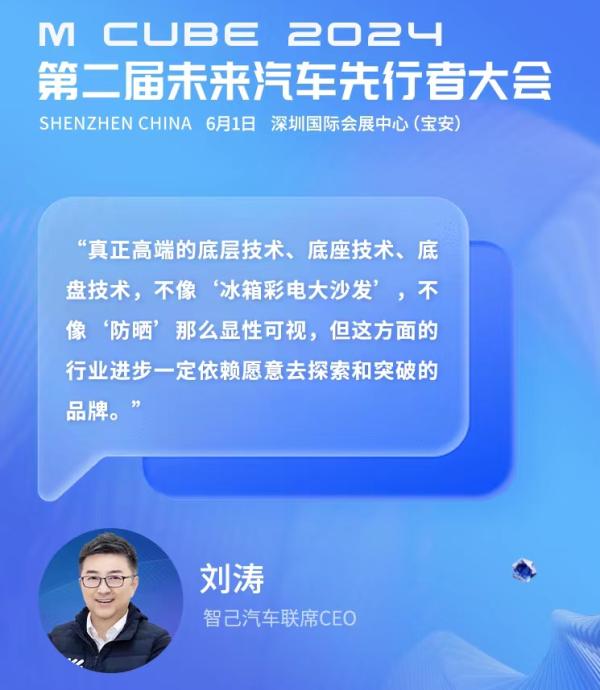
In terms of products, Liu Tao revealed that the world's first generation of mass-produced solid-state batteries will be installed in cars in October this year. Zhiji Auto has planned a future technology roadmap: by 2025, the liquid content of its mass-produced products will be further reduced to 5%, closer to "all solid"; by 2026, Zhiji Auto plans to mass-produce all-solid-state batteries with zero liquid content.
